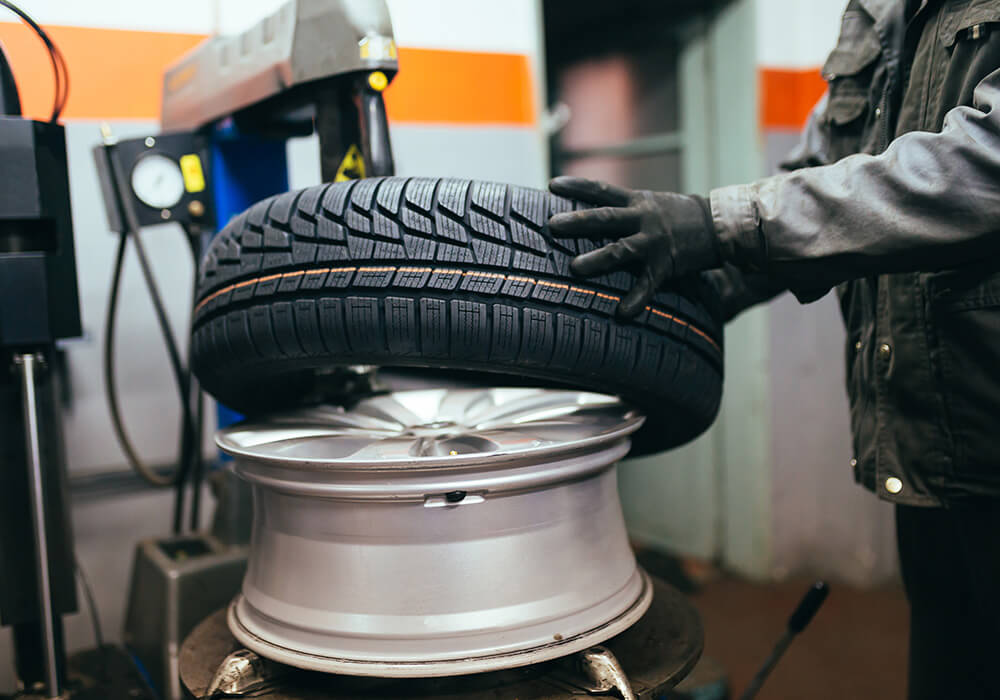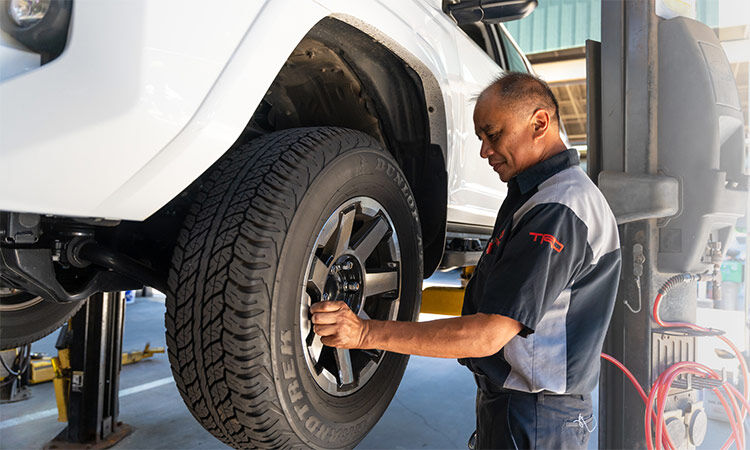Morris Tire: Your Relied On Neighborhood Tire Specialists
Morris Tire: Your Relied On Neighborhood Tire Specialists
Blog Article
The Link Between Tire Solution and Fuel Efficiency
Amongst the various variables that influence fuel performance, tire service stands out as a critical element that commonly goes neglected. The complex relationship between tire upkeep and gas economy is a testament to the detailed workings of an automobile.
Relevance of Proper Tire Inflation
Correct tire rising cost of living is a vital variable in optimizing gas performance and guaranteeing ideal automobile efficiency. When tires are underinflated, it creates more rolling resistance, triggering the engine to function tougher and melt more fuel to preserve the exact same rate. On the various other hand, overinflated tires can bring about a harsher ride, uneven tire wear, and decreased grip. To discover the advised tire pressure for your car, describe the proprietor's manual or the sticker located on the chauffeur's side door jamb.
Maintaining the correct tire pressure not just enhances fuel efficiency but additionally enhances driving safety. Properly filled with air tires supply much better handling, braking, and overall efficiency on the roadway. Additionally, they add to expanding the lifespan of the tires, conserving you money in the long run by decreasing the frequency of substitutes. Consistently examining and changing tire pressure, specifically previously long journeys, is a straightforward yet reliable method to optimize your lorry's gas economy and make certain a smooth driving experience.
Influence of Tire Tread Deepness
Keeping the recommended tire stress is essential for ideal vehicle performance and gas efficiency; likewise, the step depth of your tires plays a critical role in making sure safety and traction on the roadway. Tire step depth directly affects the capacity of your tires to grip the road surface, especially in wet or unsafe problems. As tires wear down, their tread depth reductions, influencing their ability to channel water away and preserve appropriate call with the roadway. The recommended minimum tread depth is normally 2/32 of an inch, yet for enhanced safety and performance, numerous professionals recommend transforming tires prior to they reach this factor. Proper tread depth not only ensures better handling and stopping however also adds to fuel efficiency by decreasing rolling resistance. Consistently evaluating your tire tread deepness and changing tires when essential is a simple yet reliable means to advertise both safety and security and gas effectiveness when traveling.
Function of Wheel Positioning in Efficiency
Making certain precise wheel placement is crucial for maximizing automobile performance and optimizing fuel economic climate. Correct wheel positioning entails adjusting the angles of the wheels to maker requirements, guaranteeing that they are alongside each other and perpendicular to see here now the ground. When wheels are misaligned, it can bring about uneven tire wear, boosted moving resistance, and decreased fuel performance.

Furthermore, precise wheel alignment can also improve taking care of and security, minimizing the quantity of energy needed to steer the lorry (tire shop near me). By decreasing unneeded friction and drag, proper wheel placement plays a critical function in enhancing overall lorry effectiveness and fuel economy. Normal wheel placement checks and modifications are important for keeping ideal performance and making the most of gas cost savings
Connection In Between Tire Maintenance and MPG
An essential facet of enhancing gas see this effectiveness in vehicles is the upkeep of tires and their straight influence on miles per gallon (MPG) Proper tire upkeep plays an essential duty in taking full advantage of fuel economic climate. One key aspect affecting MPG is tire stress. Underinflated tires enhance rolling resistance, creating the engine to work tougher and burn even more fuel. On the other hand, overinflated tires lower the get in touch with spot with the road, causing uneven wear and reduced gas efficiency. Consistently inspecting and keeping the correct tire pressure can dramatically improve MPG.
Furthermore, tire walk depth also influences fuel efficiency. By ensuring tires have adequate step deepness, vehicle drivers can boost both safety and security and gas economic climate.
In significance, appropriate tire maintenance, including monitoring tire pressure and step deepness, is directly linked to attaining optimum MPG. By integrating regular tire inspections and upkeep right into an automobile care routine, vehicle drivers can not just prolong tire life but additionally enhance fuel performance, inevitably saving money and lowering ecological impact.

Tips for Fuel-Efficient Tire Treatment
Given the critical connection in between tire maintenance and gas efficiency, executing reliable techniques for enhancing tire treatment is essential to boosting overall car efficiency. To ensure fuel-efficient tire care, normal tire stress checks are vital. Effectively inflated tires minimize rolling resistance, improving fuel effectiveness and expanding tire lifespan. Furthermore, keeping proper wheel positioning and harmonizing aids distribute weight uniformly, stopping irregular tire wear and enhancing gas usage. Revolving tires at recommended intervals advertises also step wear, enhancing gas effectiveness by ensuring all tires contribute similarly to car efficiency. It is additionally important to check tires for indicators of damages, such as cuts, slits, or protrudes, as these concerns can influence gas performance and total safety and security. Picking tires with reduced rolling resistance can considerably enhance fuel economy. By incorporating these fuel-efficient tire treatment pointers right into a regular maintenance schedule, drivers can take full advantage of fuel efficiency, reduce operating costs, and prolong the life of their tires.
Verdict
Finally, appropriate tire service plays an important role in fuel effectiveness. my sources Maintaining right tire rising cost of living, keeping an eye on walk deepness, and making sure wheel positioning can all add to optimizing miles per gallon. By routinely keeping tires and following fuel-efficient tire care ideas, chauffeurs can maximize their automobile's performance and decrease gas consumption. It is vital to focus on tire maintenance to not just save cash on fuel prices but likewise to advertise total vehicle effectiveness.
Report this page